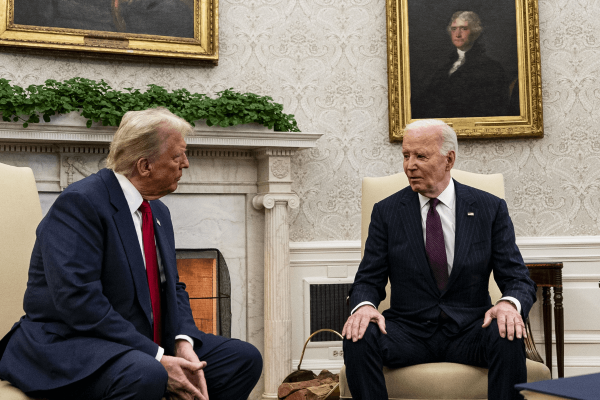A friend recently asked me, “Is Reformed theology for black people?” As president of the Reformed African American Network, I have frequently pondered this question, and it’s one that eludes an easy answer.
Reformed theology is part of the flood of teachings that tumbled forth from the Protestant Reformation. While all Protestant Christians trace their ecclesiastical lineage to the Reformation, Reformed theology represents a distinct branch of the church. Theologians and churchmen such as John Calvin, Herman Bavinck, and Jonathan Edwards advanced the tradition, which emphasizes the sovereignty of God and a precise, scholarly brand of theology.
One issue black people have with Reformed theology is its Eurocentric roots. Reformed theology came to America by way of European countries, including France, England, Scotland, and the Netherlands. White, educated men crafted the teachings, wrote the books and led the churches. They did not have black people in mind.
One of the most frustrating aspects of Reformed theology for black Christians is the fact that many Reformed believers condoned slavery or were even slaveholders themselves. All of their focus on meticulous exposition of the Bible didn’t lead them to conclude that people should not be property. Moving forward to the civil rights movement of the 1950s and 1960s, Reformed Christians, like many conservative white evangelicals, were either silent about the struggle for black civil rights or they outright opposed it.
Given the history of slavery and racism practiced by white Reformed Christians, black people are an unlikely group to identify as Reformed.
But that doesn’t mean it didn’t resonate.
The rise of Christian hip-hop has played a role in a recent surge of interest in Reformed theology among African-Americans. With groups like Cross Movement paving the way in the 1990s, another wave of lyrical theology emerged in the 2000s. One of the most influential groups of this period was the label Reach Records, which featured artists such as Sho Baraka, Trip Lee, and Tedashii. Along with other Christian rappers including Shai Linne, Flame, and Voice, these artists were black, urban, and unashamed of their faith.
Contemporary Reformed thinkers such as John Piper, R.C. Sproul, and John MacArthur influenced these Christian rappers. Quotes and sound bites even showed up in the songs. The music and the culture these artists embodied introduced many young black Christians to Reformed theology — without necessarily labeling it Reformed theology.
Other factors, too, have aided in the rise of self-professed Reformed black Christians. Greater access to seminaries that teach Reformed theology as well as church planting efforts in predominantly black, urban neighborhoods have broadened pathways into the tradition.
In the past few years, though, many black Christians have reconsidered the Reformed label. In many ways, the 2014 killing of Mike Brown by a white police officer in Ferguson, Mo., served as a turning point. Younger black Christians became more vocal about systemic injustices such as mass incarceration and police brutality. They explored how their faith spoke to the persistent issues of inequality that harm black people.
These were themes that many white Reformed pastors and theologians seldom addressed. When they did talk about justice, it was most often focused on individuals, and not the collective, systemic nature and impact of racism over generations.
On top of that, the 2016 presidential election saw 81 percent of white evangelicals who voted throw their support toward the Republican candidate. While conservative white Christians usually vote Republican, black Christians expected Donald Trump’s racial rhetoric and support from white nationalists and white supremacist groups to at least dampen white evangelical enthusiasm for him. Instead, white evangelicals actually showed slightly stronger support for Trump in 2016 than for Republican presidential candidate Mitt Romney in 2012.
Black Christians realized anew how big the rift was between their core concerns and those of their white Reformed co-religionists.
Five hundred years after Martin Luther challenged Catholic clergy on key church teachings, the Reformation continues. This time the transformation needs to emphasize not only orthodoxy (“right belief”) but orthopraxy (“right action”) as well. Reformed theology prides itself on intellectual explorations of the faith. In the 21st century, though, it must also embrace an ethical approach to the Bible, especially regarding race and public justice.
As an African-American, I am learning to draw more intentionally on the expansive black church tradition to address these modern times.
The black church has always highlighted the demands of the Bible when it comes to public action. The Rev. Charles H. Pearce, who helped establish the African Methodist Episcopal Church in Florida in the 19th century, put it this way: “A man in this state cannot do his whole duty as a minister except if he but looks out for the political interests of his people.”
Religious beliefs motivated black women and men to pursue racial justice even at the risk of their lives. Richard Allen, Frederick Douglass, Ida B. Wells-Barnett, Fannie Lou Hamer, Coretta Scott King, John Perkins, and a multitude of black Christians whose names will never appear in a history book saw the inseparable connection between Christian faith and righteous practice.
The modern-day Reformation must also bring to the forefront those groups that have been historically muted or silenced because of prejudice.
Black and brown people, among whom Christianity is growing exponentially in the majority of the world, must articulate the doctrines in a way that makes them relevant to present-day. Women, as half the population and equal as God’s image-bearers, must have a vocal and visible role in this movement. White Christians must follow and learn from those whom society has often marginalized. Today’s Reformation must be an inclusive one that makes room for both women and men, all economic classes and every tribe and tongue of those who believe.
Christianity is a worldwide religion that includes a diverse array of people. The challenge of the Reformation in America today is to reflect that heterogeneity while maintaining unity in the midst of it.
Got something to say about what you're reading? We value your feedback!






